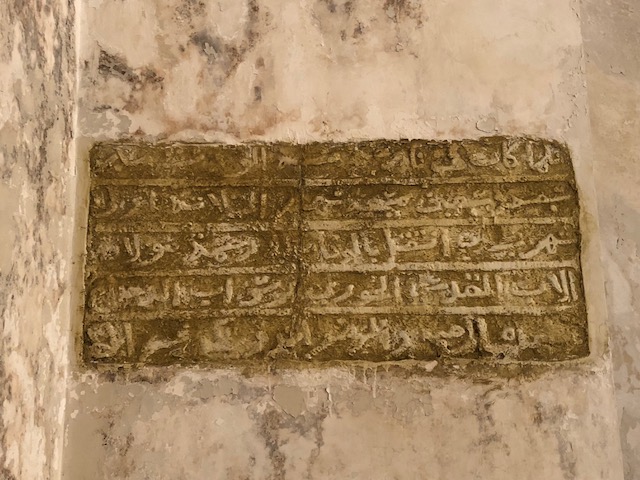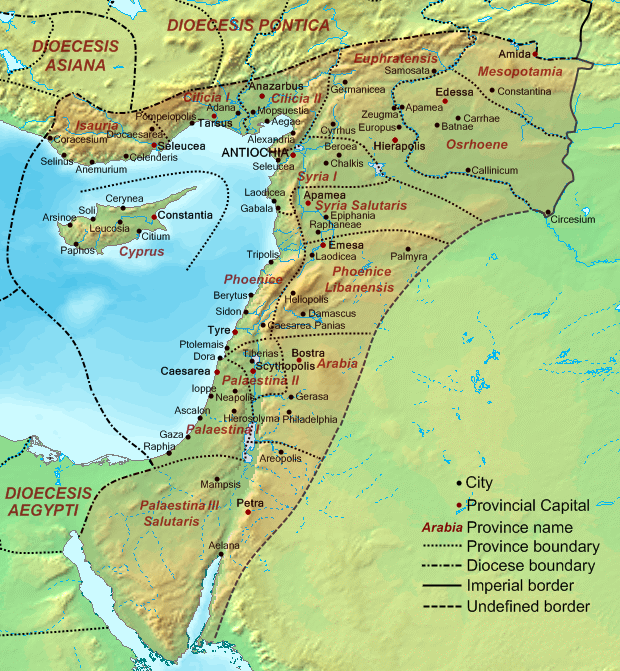|
House Of Al-Dahdah
The al-Dahdah family (also spelled El-Dahdaah, and El-Dahdah) is a noble Maronite Christian family originating from the village of Aqoura in Mount Lebanon, and whose line of descent is attested since the 14th century. It traces back in continuous lineage to Girgis al-Dahdah, the son-in-law of Ghazal al-Qaysi, Muqaddam of Aqoura, who died in 1375 without male issue. Beginning in 1703, the family received agricultural estates in the Futuh tax-farming district of Mount Lebanon, and in 1705 it settled in the nearby village of Aramoun, Keserwan, Aramoun in the Keserwan District. Its members have collectively held the iqta', or tax-farming concession, for the Futuh district of Mount Lebanon from Ottoman authorities from 1771 until the Ottoman Empire, Ottoman Tanzimat ended the iqta' system in Mount Lebanon in 1859. One branch of the family, that of Mansur al-Dahdah also held the iqta' for the Byblos District for about the same period of time. In the writings of 19th century chroniclers of ... [...More Info...] [...Related Items...] OR: [Wikipedia] [Google] [Baidu] |
Maronite
The Maronites ( ar, الموارنة; syr, ܡܖ̈ܘܢܝܐ) are a Christian ethnoreligious group native to the Eastern Mediterranean and Levant region of the Middle East, whose members traditionally belong to the Maronite Church, with the largest concentration long residing near Mount Lebanon in modern Lebanon. The Maronite Church is an Eastern Catholic particular church in full communion with the Pope and the rest of the Catholic Church, whose membership also includes non-ethnic Maronites. The Maronites derive their name from the Syriac Christian saint Maron, some of whose followers migrated to the area of Mount Lebanon from their previous place of residence around the area of Antioch, and established the nucleus of the Antiochene Syriac Maronite Church. Christianity in Lebanon has a long and continuous history. Biblical scriptures purport that Peter and Paul evangelized the Phoenicians, whom they affiliated to the ancient patriarchate of Antioch. The spread of Christianity ... [...More Info...] [...Related Items...] OR: [Wikipedia] [Google] [Baidu] |
Eponymous
An eponym is a person, a place, or a thing after whom or which someone or something is, or is believed to be, named. The adjectives which are derived from the word eponym include ''eponymous'' and ''eponymic''. Usage of the word The term ''eponym'' functions in multiple related ways, all based on an explicit relationship between two named things. A person, place, or thing named after a particular person share an eponymous relationship. In this way, Elizabeth I of England is the eponym of the Elizabethan era. When Henry Ford is referred to as "the ''eponymous'' founder of the Ford Motor Company", his surname "Ford" serves as the eponym. The term also refers to the title character of a fictional work (such as Rocky Balboa of the ''Rocky'' film series), as well as to ''self-titled'' works named after their creators (such as the album ''The Doors'' by the band the Doors). Walt Disney created the eponymous Walt Disney Company, with his name similarly extended to theme parks such a ... [...More Info...] [...Related Items...] OR: [Wikipedia] [Google] [Baidu] |
Sacrament Of Marriage
Marriage in the Catholic Church, also known as holy matrimony, is the "covenant by which a man and woman establish between themselves a partnership of the whole of life and which is ordered by its nature to the good of the spouses and the procreation and education of offspring", and which "has been raised by Christ the Lord to the dignity of a sacrament between the baptised." Catholic matrimonial law, based on Roman law regarding its focus on marriage as a free mutual agreement or contract, became the basis for the marriage law of all European countries, at least up to the Reformation. The Catholic Church recognizes as sacramental, (1) the marriages between two baptized non-Catholic Christians or between two baptized Orthodox Christians, as well as (2) marriages between baptized non-Catholic Christians and Catholic Christians, although in the latter case, consent from the diocesan bishop must be obtained, with this termed "permission to enter into a mixed marriage". To illustra ... [...More Info...] [...Related Items...] OR: [Wikipedia] [Google] [Baidu] |
Laqlouq
Laqlouq ( ar, لقلوق), also spelled ''Laklouk'' and also known as ′Arab Laqlouq ( ar, عرب القلوق) is a small mountainous village in mountainous area in the Byblos District of Keserwan-Jbeil Governorate, Lebanon. It is located 69 kilometers northeast of Beirut. Laqlouq has an average elevation of 1,780 meters above sea level and a total land area of 210 hectares. Most of the inhabitants are Sunni Muslims, in contrast to the majority of Byblos District's population, which is largely Maronite Christian with a significant Shia Muslim minority.Laqlouq ''Localiban''. Localiban. 2007-04-28. History Laqlouq was founded in the 18th century by s who are known today as ''′Arab al-Laqlouq''.[...More Info...] [...Related Items...] OR: [Wikipedia] [Google] [Baidu] |
Mamluk
Mamluk ( ar, مملوك, mamlūk (singular), , ''mamālīk'' (plural), translated as "one who is owned", meaning " slave", also transliterated as ''Mameluke'', ''mamluq'', ''mamluke'', ''mameluk'', ''mameluke'', ''mamaluke'', or ''marmeluke'') is a term most commonly referring to non-Arab, ethnically diverse (mostly Southern Russian, Turkic, Caucasian, Eastern and Southeastern European) slave-soldiers and freed slaves who were assigned military and administrative duties, serving the ruling Arab dynasties in the Muslim world. The most enduring Mamluk realm was the knightly military class in Egypt in the Middle Ages, which developed from the ranks of slave-soldiers. Originally the Mamluks were slaves of Turkic origin from the Eurasian Steppe, but the institution of military slavery spread to include Circassians, Abkhazians, Georgians,"Relations of the Georgian Mamluks of Egypt with Their Homeland in the Last Decades of the Eighteenth Century". Daniel Crecelius and Gotcha ... [...More Info...] [...Related Items...] OR: [Wikipedia] [Google] [Baidu] |
Bilad Al-Sham
Bilad al-Sham ( ar, بِلَاد الشَّام, Bilād al-Shām), often referred to as Islamic Syria or simply Syria in English-language sources, was a province of the Rashidun, Umayyad, Abbasid, and Fatimid caliphates. It roughly corresponded with the Byzantine Diocese of the East, conquered by the Muslims in 634–647. Under the Umayyads (661–750) Bilad al-Sham was the metropolitan province of the Caliphate and different localities throughout the province served as the seats of the Umayyad caliphs and princes. Bilad al-Sham was first organized into the four '' ajnad'' (military districts; singular ''jund'') of Filastin (Palestine), al-Urdunn (Jordan), Dimashq (Damascus), and Hims (Homs), between 637 and 640 by Caliph Umar following the Muslim conquest. The ''jund'' of Qinnasrin was created out of the northern part of Hims by caliphs Mu'awiya I () or Yazid I (). The Jazira (Upper Mesopotamia) was made an independent province from the Mesopotamian part of Qinnasrin by ... [...More Info...] [...Related Items...] OR: [Wikipedia] [Google] [Baidu] |
Qays
Qays ʿAylān ( ar, قيس عيلان), often referred to simply as Qays (''Kais'' or ''Ḳays'') were an Arab tribal confederation that branched from the Mudar group. The tribe does not appear to have functioned as a unit in the pre-Islamic era (pre-630). However, by the early Umayyad period (661-750), its constituent tribes consolidated into one of the main tribo-political factions of the caliphate. The major constituent tribes or tribal groupings of the Qays were the Ghatafan, Hawazin, Amir, Thaqif, Sulaym, Ghani, Bahila and Muharib. Many of these tribes or their clans migrated from the Arabian Peninsula and established themselves in Jund Qinnasrin (military district of northern Syria) and the Jazira (Upper Mesopotamia), which long became their abode. From there they governed on behalf of the caliphs or rebelled against them. The power of the Qays as a unified group diminished with the rise of the Abbasid Caliphate which did not derive its military strength solely from the ... [...More Info...] [...Related Items...] OR: [Wikipedia] [Google] [Baidu] |
Deacon
A deacon is a member of the diaconate, an office in Christian churches that is generally associated with service of some kind, but which varies among theological and denominational traditions. Major Christian churches, such as the Catholic Church, the Oriental Orthodox Churches, the Eastern Orthodox Church, the Scandinavian Lutheran Churches, the Methodist Churches, the Anglican Communion, and the Free Church of England, view the diaconate as an order of ministry. Origin and development The word ''deacon'' is derived from the Greek word (), which is a standard ancient Greek word meaning "servant", "waiting-man", "minister", or "messenger". It is generally assumed that the office of deacon originated in the selection of seven men by the apostles, among them Stephen, to assist with the charitable work of the early church as recorded in Acts of the Apostles chapter 6. The title ''deaconess'' ( grc, διακόνισσα, diakónissa, label=none) is not found in the Bible. Ho ... [...More Info...] [...Related Items...] OR: [Wikipedia] [Google] [Baidu] |
Prophet Muhammad
Muhammad ( ar, مُحَمَّد; 570 – 8 June 632 CE) was an Arab religious, social, and political leader and the founder of Islam. According to Islamic doctrine, he was a prophet divinely inspired to preach and confirm the monotheistic teachings of Adam, Abraham, Moses, Jesus, and other prophets. He is believed to be the Seal of the Prophets within Islam. Muhammad united Arabia into a single Muslim polity, with the Quran as well as his teachings and practices forming the basis of Islamic religious belief. Muhammad was born approximately 570CE in Mecca. He was the son of Abdullah ibn Abd al-Muttalib and Amina bint Wahb. His father Abdullah was the son of Quraysh tribal leader Abd al-Muttalib ibn Hashim, and he died a few months before Muhammad's birth. His mother Amina died when he was six, leaving Muhammad an orphan. He was raised under the care of his grandfather, Abd al-Muttalib, and paternal uncle, Abu Talib. In later years, he would periodically seclude himse ... [...More Info...] [...Related Items...] OR: [Wikipedia] [Google] [Baidu] |
Christianity
Christianity is an Abrahamic monotheistic religion based on the life and teachings of Jesus of Nazareth. It is the world's largest and most widespread religion with roughly 2.38 billion followers representing one-third of the global population. Its adherents, known as Christians, are estimated to make up a majority of the population in 157 countries and territories, and believe that Jesus is the Son of God, whose coming as the messiah was prophesied in the Hebrew Bible (called the Old Testament in Christianity) and chronicled in the New Testament. Christianity began as a Second Temple Judaic sect in the 1st century Hellenistic Judaism in the Roman province of Judea. Jesus' apostles and their followers spread around the Levant, Europe, Anatolia, Mesopotamia, the South Caucasus, Ancient Carthage, Egypt, and Ethiopia, despite significant initial persecution. It soon attracted gentile God-fearers, which led to a departure from Jewish customs, and, a ... [...More Info...] [...Related Items...] OR: [Wikipedia] [Google] [Baidu] |







